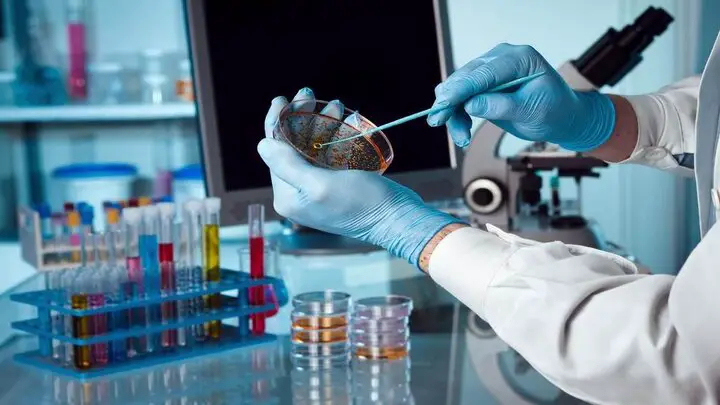Perhaps you have just enrolled as a microbiology student or are considering enrolling, and you want to know how hard it can be. This article will help you.
Whether a course is challenging often boils down to a matter of interest and aptitude. Microbiology involves many details you need to memorize off the top of your head.
For instance, it requires you to know the names of many microorganisms, how they behave, their morphology, and more. It also strongly focuses on research and practice, which may take a toll on you.
If you don’t like research and find it difficult to memorize, microbiology can be very strenuous and hard for you. Generally speaking, no course doesn’t require effort.
This article contains those factors that make microbiology difficult and essential tips to help you excel in the course as a student.
What is microbiology?

Microbiology is the scientific study of microorganisms such as bacteria, algae, fungi, viruses, slime molds, and protozoa.
These microbes are tiny organisms that cannot be seen by the naked eye but can cause infections such as covid-19, tuberculosis, malaria, bird flu, and so on.
Microbiology studies the behavior, evolution, ecology, psychology, and biochemistry of microbes and the pathology of the diseases they cause.
Through various research and testing, microbiology has aided in treating and preventing these diseases.
One of the most prominent is the development of antibiotics by Alexander Fleming in 1938. Before this, bacterial meningitis killed many children.
Max Theiler also developed a vaccine in 1937 to combat yellow fever, a leading cause of death for many people globally.
Why is microbiology so hard?
Microbiology is a bulky course that requires extensive study and research. Here’s a list of reasons why many students find it difficult:
1. The necessity to master the names of microorganisms
A major challenge for many microbiology students is knowing the names of many microorganisms by heart. Even so, many of these microorganisms have very long and complex names.
Names like Pseudomonas aeruginosa and Aggregatibacter actinomycetemcomitans are tough to pronounce and spell. Although to make things easier, shorter versions of the names also exist.
Yet, it isn’t as easy as learning an English word, as most names are Latin. There’s also no familiar suffix that can help easily identify these microbes.
2. Identifying the cause of infections
Microbiology studies numerous infections caused by microbes. What can be confusing is knowing exactly which microbe causes a certain infection.
This is because one microorganism can cause a variety of infections. Conversely, an infection could be caused by more than one microbe.
A good example is the Human Papillomavirus (HPV), which is responsible for cervical cancer and common warts. If you’re not careful, you will mix many things up.
3. Extensive research and practical
Microbiology is largely based on research and practice. If you are not interested in doing extensive research or do not enjoy hands-on learning, you’ll have a hard time learning the subject.
The practice also involves complex cultures and a microscope to visualize everything.
4. Practical errors
The bitter truth about microbiology practical is that the result is not always favorable. A little error can alter the outcome and lead to wasted effort.
It involves you following every step painstakingly and observing. For instance, when culturing microbes, the ideal conditions for temperature, light, oxygen, and carbon dioxide must be observed.
5. Pharmacological challenges
Another challenge with microbiology is that you need to know exactly what drug to administer for an infection.
This will require that you first identify the microbe causing the infection. But pinpointing the actual microbe responsible for the infection can be confusing.
Remember that prescribing the wrong medication can lead to even more complications for a patient and possible legal consequences for you.
How to pass microbiology?
Considering the factors above, you may start to feel discouraged about pursuing a degree in microbiology or wonder if it’s possible to scale through studying the course.
Fortunately, I have highlighted some of the best tips to help you excel when studying microbiology.
1. Embrace a positive mindset
Success or failure starts with the mind. If you succeed in anything, you must first believe that you can. Think about how far you’ve come despite the hurdles you faced and how you’ve overcome them.
If you decide, you can pass microbiology with good grades. But if you do not believe that you can excel in whatever you do, doing well in microbiology might not be possible.
2. Have a study plan
Once you can build robust confidence and believe in yourself, the next thing is to develop a study plan. Without proper planning, it may be challenging to achieve your goals.
A study plan is a schedule that helps you manage your time and daily reading activities. You could dedicate at least 2 hours to reading and leave some time for other things.
3. Use visual aids
Microbiology deals with microbes that you cannot see with your naked eyes. However, diagrams, videos, and infographics are available online and in textbooks to help you understand better.
Incorporating these materials during your studies will give you a better understanding and help you retain more of what you learn. Research states that visuals are processed 60,000 times faster in the brain than text.
4. Join a study group
The importance of having a study group cannot be overemphasized. You can read and share ideas with these groups of persons, debate topics, and work together to undertake practicals.
They can also help you stay accountable for your reading plan and motivate you to do more. Even if you prefer reading alone, having a group like this could help you revise your reading.
5. Use mnemonics and flashcards
Using mnemonics while studying microbiology is a great technique to help you remember things easily. You could write down these mnemonics on flashcards and take them along anywhere.
This will enable you to read on the go and hasten your ability to memorize the names of microbes, infections, and other important concepts.
6. Apply a learning pattern
Microbiology is broad. So, trying to study without a plan can be misleading and waste time. What’s best is to take the topics step-by-step.
For instance, you can start by learning about bacteria, then move on to fungi, protozoa, etc. This way, you can learn about the peculiarities of each of them without confusing yourself.
7. Never skip classes
Microbiology is a discipline that involves learning new concepts and ideas constantly. Therefore, skipping classes would be of great disadvantage to you.
You may not be able to meet up with previous lessons, which could affect your grade. Moreso, you’d be at loggerheads with your teachers who don’t speak well.
8. Take notes in class
Don’t underestimate the importance of jotting down what you’re taught in class. Instructors always simplify concepts while teaching, so jotting those little things down can make all the difference.
You can refer to these notes after class or during your studies to aid your understanding. This way, you can recall it faster and ace your exams.
9. Keep practicing
You already know that microbiology involves a lot of practicals. And the truth is, you cannot be perfect in just one attempt. That is why it’s important to revisit these practicals again and again.
If you’re finding it difficult to obtain the result you seek, ask for assistance from your lecturer or fellow students who are more knowledgeable.
Is microbiology worth studying?
Yes, because microbiology is a discipline that you can apply to many fields. It helps you learn about health and safety, how to test and identify infections, and give proper medications.
A degree in microbiology can help you find jobs as an infection physician, a public policy and regulatory affairs professional, an echo activist, and more.
FAQs
How many years does it take to study microbiology?
A bachelor’s degree in microbiology takes 4 years.
What do you find hardest to do when studying microbiology?
One of the hardest things students find in microbiology is the complex Latin names they need to memorize.
Would studying microbiology in high school help in college?
Yes.
Studying microbiology in high school would help you understand the basics of the course before college.
Final Thoughts
Microbiology is hard, but you can get through with the right mindset, a study plan, a group discussion, and other helpful tips.
The beauty of studying microbiology is that you can apply it to living a healthy lifestyle and helping those around you.
Finally, you may find the article on what you can do with a health science degree article helpful. So do well to check it out
I hope this article helped.
Thanks for reading.







